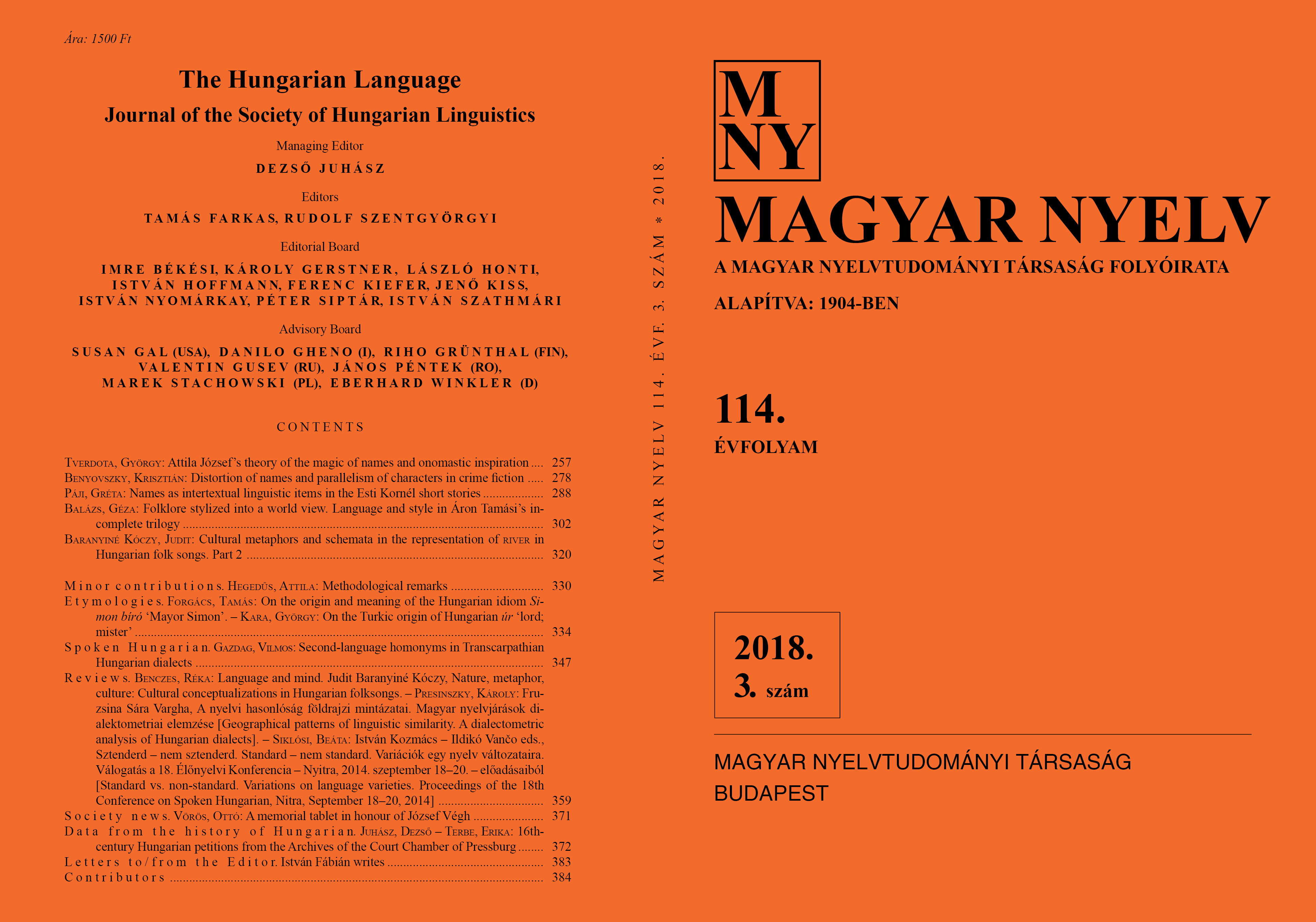On the origin and meaning of the Hungarian idiom Simon bíró ‘Mayor Simon’
DOI:
https://doi.org/10.18349/MagyarNyelv.2018.3.334Keywords:
idioms, explanation of idioms, origin of idioms, phraseology, historical phraseology, lexicologyAbstract
Simon bíró ‘Mayor Simon’, a Hungarian idiom no longer in use was first recorded in 1541. However, its meaning is not unambiguous: it is ‘virago’ in some collections and ‘henpecked husband’ in others; what is more, some give the meaning as ‘mindless’. There are different explanations of its origin, too. According to one interpretation, the idiom alludes to a mayor called Simon oppressed by his wife, but later it was found that the idiom goes back to a German noun, Siemann ‘henpecked husband’ and thus the idiom is a phraseological loan with a modified form to which the bíró ‘mayor’ component was added later, perhaps influenced by German forms like Doktor Siemann. The German lexeme, Siemann, may also refer to both a virago and a wife-ridden husband, and thus Hungarian may have borrowed the expression with both meanings. The Hungarian idiom has an extended variant, too: Simon bíró hajtja a lovat ‘Mayor Simon drives the horse’. The first appearance of this more complete form is found in Baranyai Decsi (1598) where the completion may have been influenced by its Latin equivalent, Currus bovem trahit ‘The carriage draws the ox’.
Downloads
Published
Issue
Section
License
Copyright (c) 2024 Tamás Forgács

This work is licensed under a Creative Commons Attribution-NonCommercial-NoDerivatives 4.0 International License.
Magyar Nyelv is a Diamond Open Access periodical. Documents can be freely downloaded and duplicated in an electronic format, and can be used unchanged and with due reference to the original source. Such use must not serve commercial purposes. In the case of any form of dissemination and use, Hungarian Copyright Act LXXVI/1999 and related laws are to be observed. The electronic version of the journal is subject to the regulations of CC BY-NC-ND (Creative Commons – Attribution-NonCommercial-NoDerivatives).
The journal permits its authors, at no cost and without any temporal limitation, to make pre-print copies of their manuscripts publicly available via email or in their own homepage or that of their institution, or in either closed or free-for-all repositories of their institutions/universities, or other non-profit websites, in the form accepted by the journal editor for publication and even containing amendments on the basis of reviewers’ comments. When the authors publicize their papers in this manner, they have to warn their readers that the manuscript at hand is not the final published version of the work. Once the paper has been published in a printed or online form, the authors are allowed (and advised) to use that (post-print) version for the above purposes. In that case, they have to indicate the exact location and other data of the journal publication. The authors retain the copyright of their papers; however, in the case of an occasional secondary publication, the bibliographical data of the first publication have to be included.



